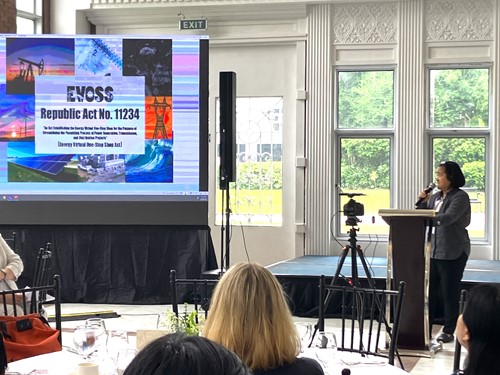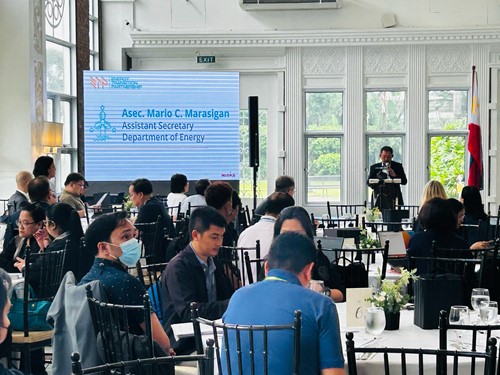News
Making offshore wind a breeze: streamlining relevant regulatory processes in the Philippines

News
The NIRAS Manila team successfully organised the first in a series of workshops designed to make the process of obtaining permits and consent easier for developers of offshore wind projects in the archipelagic country.
“From among a good number of applicants for this job, we think that NIRAS has the expertise, the experience, and a very good team to ensure this important work will be done effectively and efficiently. We value their presence on the ground and their commitment to deliver this work.”
Maria Fritzie Vergel, Philippines Country Coordinator for the Southeast Asian Energy Transition Partnership
While the Philippines already has several onshore wind farms in operation, offshore wind is a completely new industry in the country. Earlier this April, the World Bank Group released a roadmap showing that the 7,641-island nation can potentially generate up to 21 gigawatts (GW) of energy through offshore wind by 2040. One GW alone has the potential to power 876,000 households per year.
But developers face the task of navigating a daunting regulatory environment composed of many different government departments and permitting and consenting bodies, each with their own administrative requirements. And since OSW is a new technology in the Philippines, it is unclear if current regulatory processes are applicable or even in place; in some cases, the role of permitting agencies is equally unclear.
“The permitting process is one of the hurdles facing developers. In the past, it would take them so long to secure a contract or permit,” says Marissa Cerezo, Director of the Renewable Energy Management Bureau at the Department of Energy. “We in government need to set the right policies so the players in the development of these projects will be encouraged.”
As such, the Philippine Government has prioritised the creation of a robust investment climate for offshore wind development through Executive Order No. 21, which directs all relevant government agencies to create an efficient policy and administrative framework for development of the sector.
The “Permitting and Consenting Process for Offshore Wind Projects in the Philippines” project was developed in response to this order, spearheaded by the Department of Energy with the backing of the Southeast Asian Energy Transition Partnership. NIRAS was contracted to deliver a series of workshops for the relevant government agencies to bring them up to speed on the national objective for developing offshore wind energy and the need to create a more unified and efficient permitting and consenting process for offshore wind projects.
The NIRAS-run workshop brought together over a hundred in-person representatives from over 25 government agencies. In addition to those present in person, 50 online attendees joined, representing key stakeholders and industry representatives from the private sector.

The specific goal of the event was to check and facilitate each agency’s compliance with the government’s ‘Energy Virtual One Stop Shop’ (EVOSS). EVOSS is an online system that brings together the different requirements of government agencies for all activities related to power generation, transmission, and distribution into one platform. Through EVOSS, developers are able to access all of these requirements and monitor their processing status, making the task of submitting projects much more streamlined.
This workshop is only the first of several, the rest of which will be conducted alongside several analyses and studies of current gaps and constraints in the permitting process. In forthcoming workshops, the NIRAS project team will build on these studies and further engage with industry stakeholders in the development of a unified regulatory policy for offshore wind development. This project is scheduled for completion by July 2024, when the permitting framework is finalised and integrated into EVOSS.
Ultimately, the “Permitting and Consenting Process for Offshore Wind Projects in the Philippines” project will result in a clear and comprehensive regulatory process, which will incentivise the development of offshore wind projects by being more efficient and cost-effective but also more rigorous and in line with good international industry practice. This can only help to push forward the Philippines’ goals for transitioning toward more sustainable sources of energy in the decades to come.


